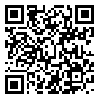

Volume 6, Issue 1 (10-2008)
RBS 2008, 6(1): 27-35 |
Back to browse issues page
Download citation:
BibTeX | RIS | EndNote | Medlars | ProCite | Reference Manager | RefWorks
Send citation to:



BibTeX | RIS | EndNote | Medlars | ProCite | Reference Manager | RefWorks
Send citation to:
علوي س س, هاشميان ک, جنتي فرد ف. Identity status and mental health in internet-user students in Tehran University. RBS 2008; 6 (1) :27-35
URL: http://rbs.mui.ac.ir/article-1-134-en.html
URL: http://rbs.mui.ac.ir/article-1-134-en.html
1- دانشيار دانشکده روانشناسي و علوم تربيتي، دانشگاه الزهرا (س)، قم
2- کارشناس بهداشت، اداره آموزش و پرورش، تهران
2- کارشناس بهداشت، اداره آموزش و پرورش، تهران
Abstract: (2494 Views)
Normal 0 false false false MicrosoftInternetExplorer4 st1:*{behavior:url(#ieooui) } /* Style Definitions */ table.MsoNormalTable {mso-style-name:"Table Normal"; mso-tstyle-rowband-size:0; mso-tstyle-colband-size:0; mso-style-noshow:yes; mso-style-parent:""; mso-padding-alt:0in 5.4pt 0in 5.4pt; mso-para-margin:0in; mso-para-margin-bottom:.0001pt; mso-pagination:widow-orphan; font-size:10.0pt; font-family:"Times New Roman"; mso-ansi-language:#0400; mso-fareast-language:#0400; mso-bidi-language:#0400;} Abstract Introduction : Youth and adolescence are important periods of human life. The time duration of using internet and virtual spaces is being increased among this age group. This study examined the identity status and mental health in three groups of Tehran University students using internet and virtual spaces. Methods and Materials : In a cross sectional study, 200 19-30 years old students selected via quota sampling from various faculties of Tehran University. Demographic questionnaire, Ego Identity scale, National Identity Scale, Religious Identity Scale and GHQ (General Health Questionnaire) were administered; then the participants were distributed in three group; namely: over users (spend 20-40 hours per week using internet and virtual spaces), moderate users (5-10 hours per week), and rare users (seldom use these media). Then they were compared regarding their mean scores of the administered scales. Data were analyzed by SPSS 10 using ANOVA and follow up Sheffe test. Results : No significant difference was considered in ego identity scores of the three groups (F = 3.2, p Conclusion: In this study, national and religious identity scores as well as mental health status scores were obviously lower in the over users group. Prolonged time usage of internet and virtual spaces may be associated with poorer mental health status as well as, defects in some identity aspects. Key word : Identity, Mental health, Students, Internet.
| Rights and permissions | |
 |
This work is licensed under a Creative Commons Attribution-NonCommercial 4.0 International License. |



